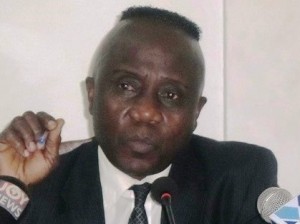Ghana needs to build economic buffer for eventualities – Dr Kwakye

Dr John K. Kwakye, Director for Research at the Institute of Economic Affairs, says the Government must take urgent steps to build economic buffer to withstand shocks such as COVID-19 and the Ukraine-Russia war.
“Ghana has been exposed badly by the recent shocks. We were not prepared. Some of our peers on the continent are coping well without running to the International Monetary Fund (IMF) for support,” he said.
“These countries are doing well, maybe because they have built strong financial shields. The inflation rate of Ivory Coast is about five per cent but ours is more than 30 per cent.”
Dr Kwakye said this on Tuesday at an encounter with some selected journalists under: “Time with Institute of Economic Affairs, (IEA) Fellows,” series to share perspectives on the economy.
He urged the government to “live within its means” by introducing policies to increase revenue domestically and achieve positive primary balance.
“Again, it is not to limit ourselves to just raise revenue to spend but get surplus and save in our buffer. If your primary balance is negative, it creates debts for you. So, we should take steps to change it to positive,” he said.
The Government, he said, must be resisted from having access to the Bank of Ghana financing.
Dr Kwakye said in order for the country to forestall a further decline of the cedi against major currencies, there was the need to restructure the economy in the medium term by adding value to the country’s natural resources.
He said although seeking support from the IMF would boost investor confidence and stabilise the economy in the short term, the government in the long term must embark on massive industralisation.
“This is the only way we can avoid being so vulnerable that we need to frequently run to the IMF for a bailout,” he said.
Ghana is seeking assistance from the IMF for Balance of Payment support to quicken the country’s economic recovery process.
It is the second time in the past three years and 17th since independence in 1957.
The latest foray reverses the current administration’s earlier stance that it would avoid approaching the multilateral body because of the conditions that come with its assistance.
Mr Ken Ofori-Atta, the Minister of Finance, said in May 2022 that the government was “confident in its homegrown solutions such as the e-levy in getting the economy to recover … seeking a bailout from the IMF is not an option.”
Ghana’s lack of fiscal discipline, and its recent history of dependence on foreign financing – with as much as 48 per cent of the total public debt being held by external investors – leaves the country vulnerable to swings in investor sentiment, and accompanying portfolio investment selloffs.
Source: GNA
